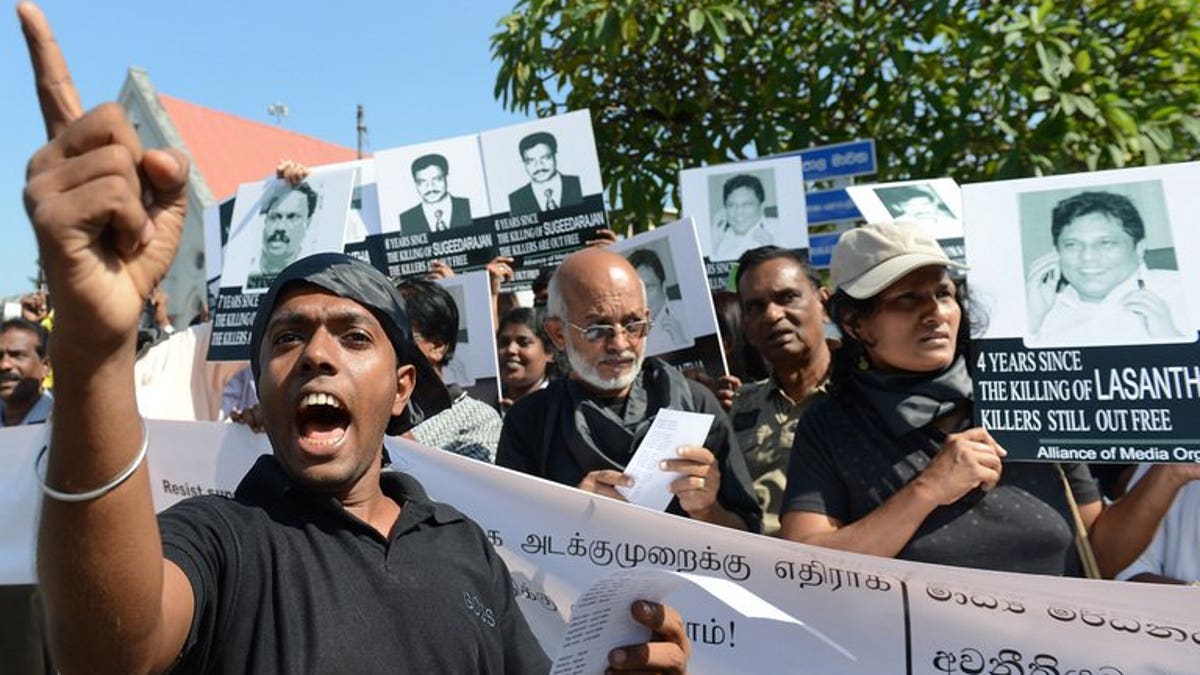
Sri Lankan journalists and media activists demonstrate, demanding investigations into over a dozen killings of editors, reporters and newspaper workers in recent years, in the capital Colombo on January 29, 2013. A Sri Lankan media rights group on Sunday accused the military of intimidating journalists who reported a deadly army crackdown on villagers protesting at contaminated water supplies. (AFP/File)
COLOMBO (AFP) – A Sri Lankan media rights group on Sunday accused the military of intimidating journalists who reported a deadly army crackdown on villagers protesting at contaminated water supplies.
The army has been come under pressure after soldiers fired on unarmed locals on August 1 in a village outside Colombo, killing three, as they protested against a factory which they say polluted their ground water.
The Free Media Movement (FMM) said the army summoned reporters, photographers and video persons to give evidence as part of a military investigation into the incident.
"Summoning the journalists who were also badly assaulted by the army to give evidence is seen by us as further intimidation," FMM convenor Sunil Jayasekera told AFP.
"They (the media) were asked to come to an army camp on Saturday, but they did not comply."
Jayasekera said the rights group was willing to cooperate with a separate police investigation also under way , but not one conducted by the army considering its own soldiers were accused of wrongdoing.
"We have asked the military to tell us under what law are they summoning the journalists to army camps to give evidence."
Military spokesman Brigadier Ruwan Wanigasooriya denied troops were intimidating witnesses, and said they issued summonses in the interests of a fair inquiry and to corroborate evidence gathered so far.
At least 26 journalists have fled Sri Lanka in the past five years to escape threats, intimidation, violence and imprisonment, according to the New York-based Committee to Protect Journalists. At least five journalists have been killed in the same period.
Sri Lanka was ranked 162 out of 179 countries in a recent press freedom index compiled by the Paris-based Reporters without Borders. Media rights groups say journalists have been forced to self-censor their work due to fear of attacks.
Residents of Weliweriya, the village 20 kilometers (12 miles) northeast of Colombo, have also told Sri Lanka's Human Rights Council of their fear of intimidation following army summonses to give evidence, local media reports said Sunday.
The US and the European Union have condemned the August 1 shooting and called for a speedy civilian inquiry to prosecute those responsible.
The incident comes ahead of a visit next week by UN human rights chief Navi Pillay, who has demanded an international probe into alleged war crimes by Sri Lankan forces during the final stages of a war against Tamil rebels in 2009.
